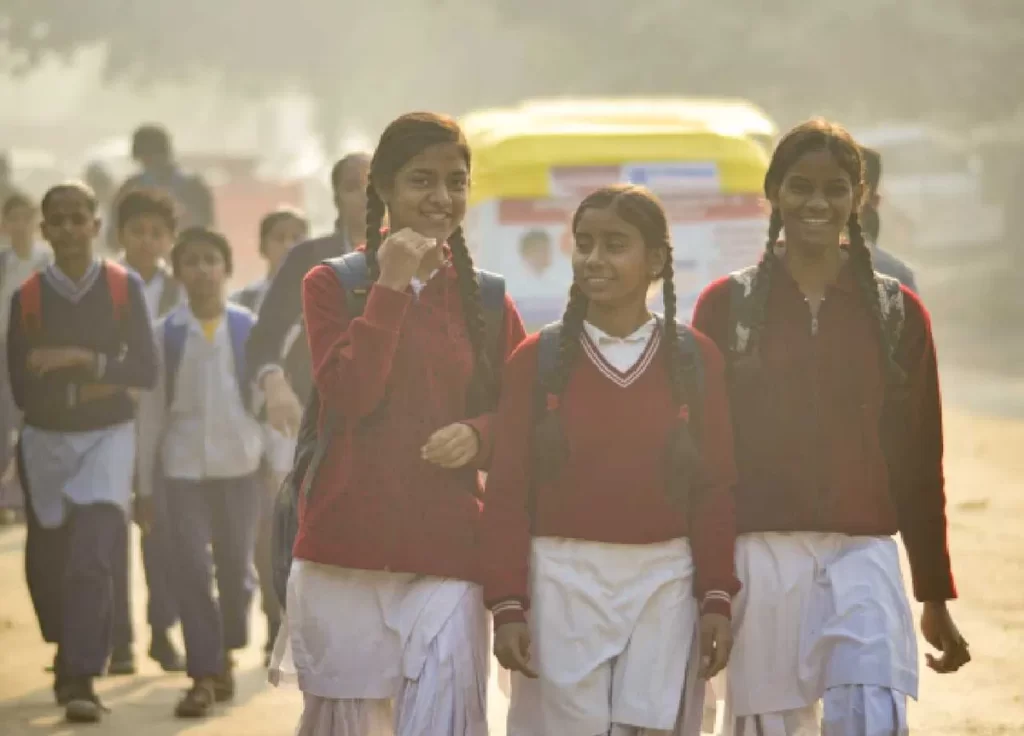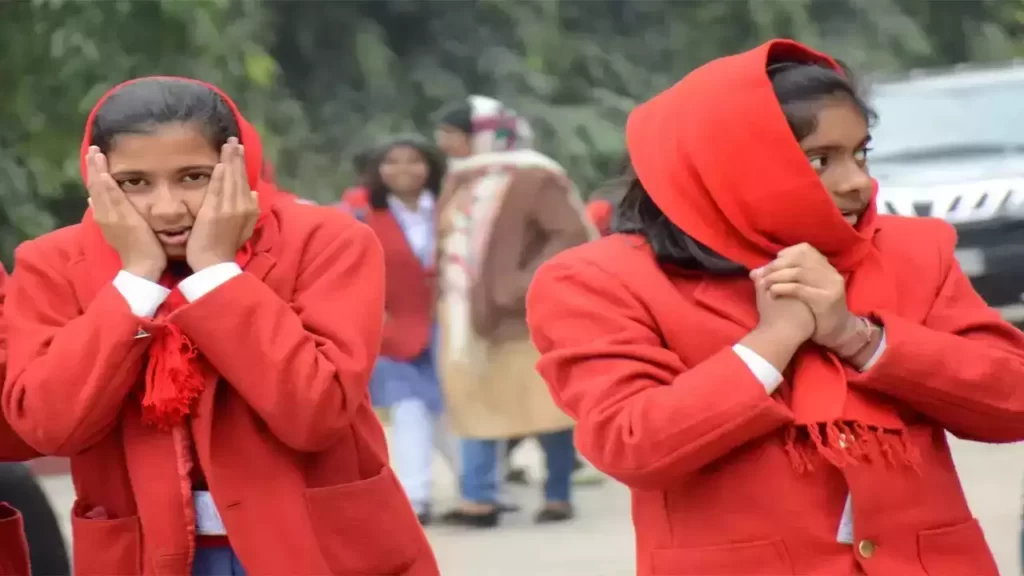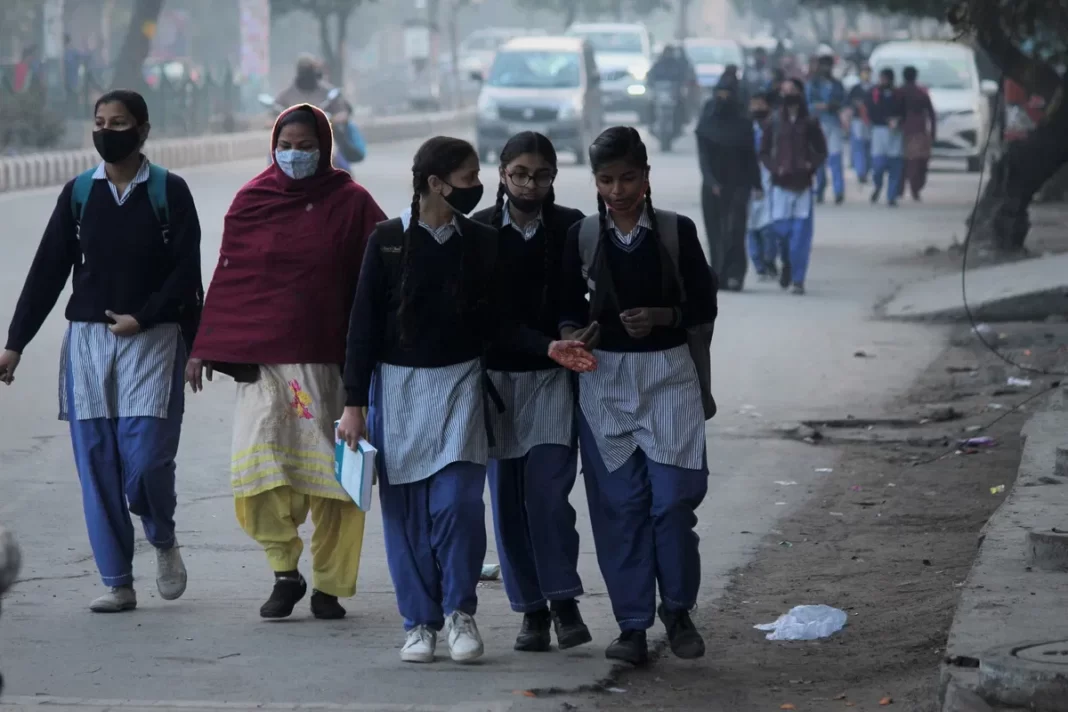In response to the ongoing cold wave gripping the region, the Punjab government has announced the extension of school closures for classes up to 10th grade until January 14. The decision aims to ensure the safety and well-being of students as temperatures continue to plummet across the state.
As winter tightens its grip on Punjab, the government has taken a proactive approach to safeguard students from the harsh weather conditions. The extended closure aligns with the authorities’ commitment to prioritizing the health of the younger population and preventing any potential health risks associated with exposure to extreme cold.
The decision was made following careful consideration of the meteorological reports indicating a persistent and intensifying cold wave across the state. With temperatures reaching unprecedented lows, the authorities believe it is in the best interest of the students to remain home until conditions improve.
Parents and guardians have welcomed the move, acknowledging the potential health hazards posed by severe cold weather, especially for young children. The decision reflects a collaborative effort between the government and the community to address the unique challenges presented by winter in the region.
The Decision For Students By Punjab
While the closure may disrupt the regular academic calendar, authorities stress that the safety of students is of paramount importance. The government has urged educational institutions to explore alternative methods of learning, such as online classes and assignments, to ensure minimal disruption to students’ education during this period.

In addition to school closures, the government is actively working to provide support to vulnerable populations who may be disproportionately affected by the harsh weather conditions. Homeless shelters, in particular, are being equipped with additional resources to accommodate those seeking refuge from the cold.
Local authorities are also advising residents to take necessary precautions to stay warm and avoid unnecessary exposure to the cold. This includes wearing layered clothing, using adequate heating in homes, and limiting outdoor activities, especially during the early morning and late evening when temperatures are at their lowest.
The cold wave has not only impacted daily life but has also posed challenges to transportation and infrastructure. Roads and highways are experiencing delays and disruptions due to frost and freezing conditions, prompting authorities to issue advisories for safe travel and urging citizens to exercise caution.

Meteorologists predict that the cold wave may persist for the coming weeks, making it essential for residents to remain vigilant and prepared for the challenging weather conditions. The government continues to monitor the situation closely and will provide updates as needed to ensure the safety and well-being of the public.
As Punjab grapples with this winter’s unrelenting cold wave, the decision to extend school closures reflects a proactive and responsive approach to the challenges posed by the extreme weather conditions. The collaborative effort between the government, educational institutions, and the community demonstrates a commitment to prioritizing the health and safety of students during this challenging period.
The extended closure of schools in Punjab prompts a reevaluation of the region’s overall preparedness for extreme weather events. The government is actively engaging with meteorological departments and disaster management agencies to enhance its capacity to respond to such situations efficiently. This includes developing robust contingency plans, improving communication strategies, and implementing measures to ensure the seamless continuation of essential services, particularly during adverse weather conditions.
Furthermore, the government is exploring initiatives to mitigate the impact of the cold wave on vulnerable populations. Efforts are underway to distribute blankets, warm clothing, and other essential supplies to those in need. Community centers and public spaces are being transformed into temporary shelters to accommodate individuals who may not have adequate housing to withstand the harsh temperatures.
While the decision to extend school closures is a proactive measure, it also underscores the importance of ongoing efforts to address the broader implications of climate-related challenges. Climate resilience is becoming a key focus for policymakers, highlighting the need for comprehensive strategies that encompass education, health, infrastructure, and social welfare.
In the midst of these challenges, the extended closure provides an opportunity for educators, parents, and students to engage in discussions about climate change and its impact on daily life. This period could be utilized for educational initiatives that raise awareness about the environment, sustainable practices, and the role individuals can play in mitigating the effects of climate change.
As Punjab navigates through this prolonged cold wave, cooperation between various sectors, including education, health, and disaster management, becomes pivotal. The government’s decision to prioritize safety by extending school closures sets a precedent for proactive governance and serves as a reminder that adapting to the changing climate requires collective efforts and multifaceted solutions.
Looking ahead, the government is expected to reassess the situation as the extended closure period approaches its end. Decisions regarding the reopening of schools will be made based on the evolving weather conditions and the assurance of a safe environment for students. In the meantime, citizens are urged to stay informed, follow safety guidelines, and collaborate with authorities to mitigate the impact of the cold wave on both individual well-being and the community at large.




